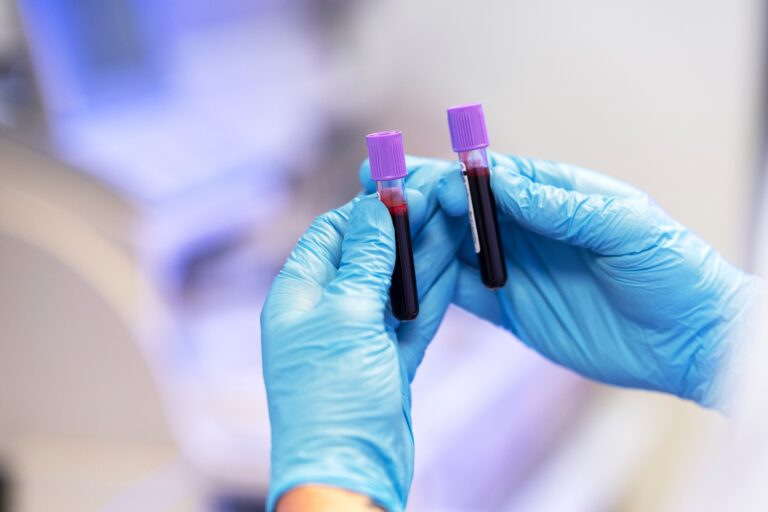Liquid Biopsies: Revolutionizing Early Detection and Monitoring of Cancer

Liquid Biopsy to test for cancer
Cancer diagnosis and monitoring have traditionally relied on invasive tissue biopsies, which can be painful, risky, and slow. However, liquid biopsies are transforming oncology by offering a non-invasive, faster, and highly effective alternative.
Liquid Biopsy - How It Works
A liquid biopsy is a simple blood test that finds cancer cells, circulating tumor DNA (ctDNA), or other indicators that tumors release into the blood. Liquid biopsies examine blood samples to detect genetic alterations and track the real-time progression of cancer, in contrast to standard biopsies that necessitate the surgical removal of tissue.
Benefits Over Traditional Biopsies
Comparing liquid biopsies to conventional tissue biopsies reveals significant benefits. They simply need a basic blood sample, which eliminates hazards and discomfort in contrast to invasive surgical procedures. Treatment decisions are accelerated by the significantly faster results, which frequently appear within days. They make it possible to identify treatment resistance or cancer recurrence early on, before symptoms appear, enabling prompt action. Furthermore, liquid biopsies provide regular, real-time monitoring of therapy response without the need for recurrent operations due to their minimally invasive nature. With the aid of this live tracking, physicians may accurately modify therapy, boosting results and lowering patient stress. In comparison to traditional techniques, liquid biopsies offer a safer, faster, and more adaptable approach to cancer treatment.
Personalizing Treatment and Tracking Recurrence
Precision medicine is made possible by liquid biopsies, which pinpoint the precise mutations causing a patient's cancer. This aids medical professionals in choosing focused treatments and modifying them as the tumor changes. They also play a crucial role in identifying minimum residual disease (MRD), which is the small amount of cancer that remains after therapy and can be detected early to help prevent recurrence.
Improving Patient Experience
Conventional biopsies may result in problems, discomfort, and worry. Liquid biopsies make cancer treatment less intimidating by lowering mental and physical stress. Frequent testing is painless for patients, which increases compliance with monitoring procedures.
A safer, faster, and more accurate method of detecting and tracking cancer, liquid biopsies mark a paradigm leap in oncology. These tests may eventually become commonplace in tailored treatment and preventive care as technology advances, ultimately saving lives through earlier intervention.












